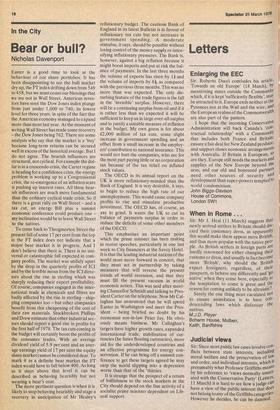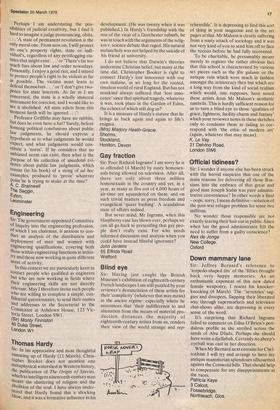Judicial views
Sir: Since most public law cases involve cow flicts between state interests, including moral welfare and the preservation of lav./ and order, and individual interests, which Is presumably what Professor Griffiths means by his reference to 'views normally assoelated with the Conservative Party' (Letters, 11 March) it is hard to see how a judge can have a view of the public interest that does not belong to any of the Griffiths categories. However he decides, he can be damned.
Perhaps I am understating the possibilities of judicial creativity, but I find it hard to imagine a judge pronouncing, obita.
• • . 'A state of permanent revolution is the only moral one. From now on, I will protect no one's property rights, state or individual's, regardless of any pettifogging statutes that might exist. . or 'There's far too much fuss about law and order nowadays. Personally, I enjoy a good riot, and I intend to protect people's right to be violent as far as possible. The victims must learn to defend themselves. . .' or 'I don't give twoPence for state interests. As far as I am concerned, the state is a wholly immoral instrument for coercion, and I would like to see it abolished. All state edicts from this moment forth will be ignored . .
Professor Griffiths may have no rabbits, but does he even have a hat? Surely, before forming political conclusions about public law judgments, he should express a hypothesis as to what judgments he would expect, and what judgments would constitute a 'norm'. If he considers that no unbiased norm can exist, then what is the Purpose of his collection of anecdotal evidence about public law judgments, which consist (in his book) of a string of ad hoc examples, produced to 'prove' whatever Point he is trying to make at the time? A C. Bramwell The Seggin, EYton, Leominster



































 Previous page
Previous page